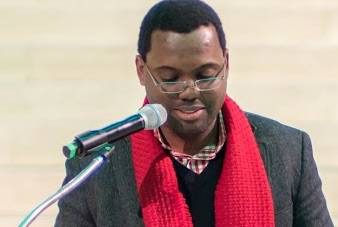Life And People
Good night, Ojo Maduekwe -By ‘Tope Oriola


Tope Oriola
I met Ojo Maduekwe in April 2014 in Ottawa, Canada at the 50th birthday party of my colleague, Nduka Otiono, professor of African Studies at Carleton University. Several members of Nigeria’s diplomatic corps and Ottawa glitterati were present at the party. Nduka was always the Organiser-in-Chief. Nduka did the introductions. Chief Maduekwe and I literally hit it off. We discussed — rather inevitably — Nigerian politics, insurgencies around the world and the global threat of terrorism. The chief was interested in my assessment of the Boko Haram threat and how long I thought it would last given my area of research.
I am a firm believer in listening to people at close quarters. I recall attending a George W. Bush event in Edmonton, Canada in October 2009. One of my colleagues was one of the many protesters at the Shaw Conference Centre in downtown Edmonton as we exited the venue. The protest was loud and strong. My colleague seemed disappointed that I had gone in to listen to George Bush, of the Iraq invasion infamy. I told her I went in to find out what Bush was like in person and if he was truly out of depths as president of the United States. “What’s your assessment? She asked. My response was: “He is a nice man but his critics are right”.
Back to Chief Maduekwe. I should point out that I find knowledge extremely attractive. I was mesmerised by his level of intelligence. Here was a man who was well-read and incredibly articulate. Knowing his political antecedents, I was left baffled by the seeming disconnect between his intelligence level and his political adventures. Why didn’t he do more to help Nigerians? Could he have done more? Why did he serve in almost every government and work closely with markedly different politicians? What did his moral compass look like? How many of our leaders are this brilliant? Why had that not translated into good governance? I was also surprised at the stark difference between his public persona and his private demeanour.
Ms. Ucha Maduekwe, chief’s spouse and I also chatted at length. We spoke about academia and the accomplishments of their children and their spouses. All three of us had such robust engagement that somehow the discussions veered into Ojo Maduekwe’s biography and whether I would be willing to write it. The suggestion came from Ms. Maduekwe. She indicated that she had repeatedly pressured him to write his biography but he had been too busy to do so. Chief said someone had compiled his speeches in a book but his life’s journey had not been completely chronicled in a book. I had research grants for travels within and outside Canada that I could spend on visits to Ottawa to interview him and conduct research in places he had lived in Nigeria. That meant that I was in a position to demand total autonomy. I informed him that the biography would be at no financial cost to him. However, I told him that in addition to a series of interviews with him and provision of documentary evidence that I might need, he would have no control over the tone and overall direction of the biography. I expected Maduekwe to say no. However, he said an enthusiastic “yes”. We exchanged business cards. He promised to send me the book on his public speeches. I promised to send him a copy of my book, Criminal Resistance? The Politics of Kidnapping Oil Workers. A few days later, a mail containing his speeches arrived from the Nigerian High Commission in Ottawa. Chief Maduekwe was serious about the biography matter.
I was beginning to have serious doubts by the time the speech collection arrived. Some of my closest friends advised me not to do it as it would be impossible to maintain complete independence. One of them was very blunt: “The man would expect you to launder his image. You are a young man; that could permanently tarnish you.” I did some research on the chief. I concluded that the biography would be scathing and unsparing of his years in government and might not be what he expected given where and how we met. I backed out of writing Chief Ojo Maduekwe’s biography.
One moment struck me in the course of our conversations in 2014. It was a moment that ought to have been private. Chief Maduekwe said there was something that Ms. Ucha Madueke clung to and had held over him “like a sword” over the years. He said he was hoping she would withdraw it. Ms. Maduekwe said she was not willing to do so. I was left wondering why such a debate would take place in front of someone they had just met. But such was the chemistry that developed. The look in the eyes of the couple showed genuine affection and the glances of familiarity that come from decades spent together. Ms. Maduekwe revealed that she would not have married Ojo Maduekwe if she had known he would go into politics. They were both visibly moved by this comment and I could feel the impact of the “sword” — the reality of his political activities — on their relationship. I would later learn from reliable sources that his children were particularly irked when he accepted to serve as Nigeria’s High Commissioner to Canada. I hope that Ms. Maduekwe or any of her children find time to write Chief Maduekwe’s biography. The task is theirs to execute. Are other family members of Nigeria’s political architects similarly conflicted about the roles of their spouses or parents? I hope families of politicians who have shaped Nigeria’s socio-political and economic trajectory — for better or worse — find time to write about their experiences. History awaits us all. Good night, Ojo Maduekwe.
‘Tope Oriola is professor of criminology at the University of Alberta, Canada. Twitter: @topeoriola


















